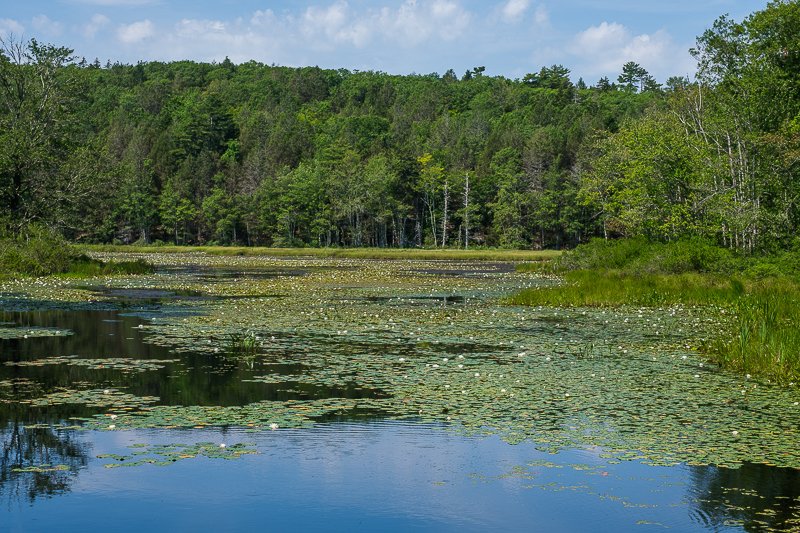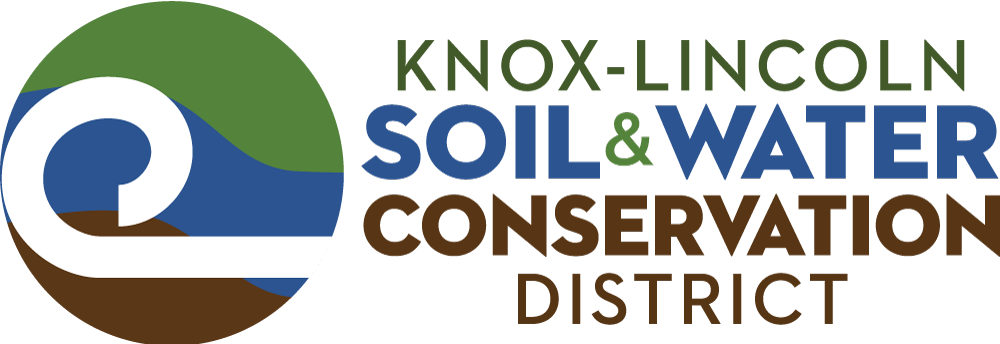
Natural Resources Conservation Service
Regional Conservation Partnership Program
The Regional Conservation Partnership Program (RCPP) is a partner-driven approach to conservation that funds solutions to natural resource challenges on agricultural land.
What is the Regional Conservation Partnership Program (RCPP)?
By leveraging collective resources and collaborating on common goals, RCPP demonstrates the power of public-private partnerships in delivering results for agriculture and conservation.
RCPP projects fall under two different categories: RCPP Classic and RCPP Grants. RCPP Classic projects are implemented using NRCS contracts and easements with producers, landowners and communities, in collaboration with project partners. Through RCPP Grants, the lead partner must work directly with agricultural producers to support the development of new conservation structures and approaches that would not otherwise be available under RCPP Classic.
Successful RCPP projects embody the following core principles:
1. Impact—RCPP applications must propose effective and compelling solutions that address one or more natural resource priorities to help solve natural resource challenges. Partners are responsible for evaluating a project’s impact and results.
2. Partner Contributions—Partners are responsible for identifying any combination of cash and in-kind value-added contributions to leverage NRCS’s RCPP investments. It is NRCS’s goal that partner contributions at least equal the NRCS investment in an RCPP project. Substantive partner contributions are given priority consideration as part of the RCPP application evaluation criteria.
3. Partnerships and Management—Partners must have experience, expertise, and capacity to manage the partnership and project, provide outreach to producers, and quantify the environmental outcomes of an RCPP project. RCPP ranking criteria give preference to applicants that meaningfully engage historically underserved farmers and ranchers.
RCPP Conservation Activities
RCPP projects may include a range of on-the-ground conservation activities implemented by farmers, ranchers and forest landowners. These activities include:
Land management/land improvement/restoration practices
Land rentals
Entity-held easements
United States-held easements
Public works/watersheds
A single RCPP project application can propose to employ any combination of these eligible activity types as part of an RCPP project.
For more information on RCPP easements, visit the RCPP easement page.
See a map of past RCPP awarded projects here.
If you a producer in Knox or Lincoln County seeking to improve aquatic organism passage on your land, you may be able to take advantage the Watershed-scale Approach to Restoring Stream Systems (WATRSS) project. Reach out to your District Conservationist to learn more.
Learn more about Natural Resources Conservation Service and other programs and initiatives offered.
Who is Eligible
Partner Eligibility
Eligible organizations interested in partnering with NRCS on conservation projects can develop applications for the RCPP competition. The lead partner for an RCPP project is the entity that submits an application, and if selected for an award is ultimately responsible for collaborating with NRCS to successfully complete an RCPP project.
See the RCPP funding announcement for details about what types of organizations are eligible to apply.
Producer and Landowner Eligibility
Once NRCS selects a project and executes an RCPP agreement with a lead partner, agricultural producers may participate in an RCPP project in one of two ways. First, producers may engage with project partners and delegate a willing partner to act as their representative in working with NRCS. Second, producers seeking to carry out conservation activities consistent with a RCPP project in the project’s geographic area can apply directly to NRCS.
Land Eligibility
RCPP projects must be carried out on agricultural or nonindustrial private forest land or associated land on which NRCS determines an eligible activity would help achieve conservation benefits (i.e., improved condition of natural resources resulting from implementation of conservation activities).
Eligible conservation activities may be implemented on public lands when those activities will benefit eligible lands as determined by NRCS and are included in the scope of an approved RCPP project.
How to Apply to RCPP
Potential partners are invited to propose RCPP projects where NRCS and partners co-invest in impactful and innovative solutions to on-farm, watershed, and regional natural resource concerns.
How to Submit a Proposal
Step 1: Partners interested in submitting a proposal must obtain level 2 eAuthentication permissions. This process can be lengthy and is solely a partner responsibility. Partners are strongly encouraged to begin the eAuth process as soon as possible to minimize the possibility of the eAuth process creating a roadblock to RCPP proposal submission. Details on how to apply for eAuth permissions are in the RCPP Partner Proposal Guide.
Step 2: Partners must request access to the RCPP portal. This process typically takes a few business days. During this process NRCS must verify a users’ eAuth permissions and during high volume periods it may take over a week.
Step 3: At least 4 weeks prior to the application deadline, and before starting an application in the RCPP portal, eligible entities interested in applying to RCPP are advised to request a meeting with the appropriate NRCS State RCPP coordinator(s). Partners are responsible for ensuring the above steps are completed early enough to meet the deadline for submitting an RCPP proposal. Most steps involve actions outside of NRCS and cannot be expedited.
Proposed projects must generate conservation benefits by addressing specific natural resource objectives in a State/multistate area or address one or more primary resource concerns within an NRCS-designated critical conservation area (CCA).
Updates to the RCPP Proposal Process In FY2023
The RCPP proposal process has been streamlined by the following updates to the NRCS Programs Portal:
Removed the requirement for document uploads per contribution deliverable.
Consolidated the activity types for entering partner contributions.
Eliminated several fields from the contribution and NRCS funding request forms.
Additional Information
Proposed projects must generate conservation benefits by addressing specific natural resource objectives in a State/multistate area or address one or more primary resource concerns within an NRCS-designated critical conservation area (CCA).
Applications are accepted from all 50 States, the Caribbean Area (Puerto Rico and U.S. Virgin Islands), and U.S. territories in the Pacific Island Areas (Guam, American Samoa, and the Commonwealth of the Northern Mariana Islands).
At least four weeks prior to the application deadline, and before starting an application in the RCPP portal or grants.gov, eligible entities interested in applying to RCPP are advised to request a meeting with the appropriate NRCS State RCPP coordinator(s).
For questions about timelines, the application process, and program requirements please e-mail your State RCPP coordinator (PDF) or the National RCPP Team.
RCPP in Maine
There are currently four RCPP projects underway and at various stages of implementation in Maine. Two projects, FISH & WATRSS, encompass Knox and Lincoln counties. Learn more below.
Watershed-Scale Approach to Restoring Stream Systems (WATRSS)
Lead Partner: The Nature Conservancy
The goal of WATRSS is to restore aquatic organism passage to road-stream crossings on private lands. The project is funded through RCPP, a program of the USDA Natural Resources Conservation Service, with The Nature Conservancy as the lead partner organization for the project.
Right: WATRSS project area and Atlantic Salmon Distinct Population Segment.
Interested in this project? Contact your District Conservationist.
Focused In-Stream Habitat (FISH)
Lead Partner: State of Maine, Department of Marine Resources
Project Type: Classic
Total Funding Request: $5,981,860.00
The Focused In-Stream Habitat aims to substantially improve in-stream habitat (including habitat diversity, habitat cover, and sediment sorting) to create spawning and rearing habitat in a focused effort in the three salmon habitat recovery units in Maine. The primary watersheds for this project were chosen based on their documented lack of large wood or insufficient channel complexity, based on physical habitat surveys. to the project will implement a suite of NRCS practices, specifically focusing on large, complex in-stream habitat enhancement projects (i.e., engineered log jams and installations using rock and wood), that we expect to improve in-stream habitat and stream function.
Learn more about this project: USDA Grant to Support Habitat Improvement for Native Species Including Endangered Atlantic Salmon
Headwaters Restoration
Lead Partner: Rangeley Lakes Heritage Trust
Project Type: Classic
Total Funding Request: $2,439,024.00
The Penobscot Indian Nation and the US Fish and Wildlife Service have partnered for the Headwaters Restoration project which will improve fish and aquatic organism passage while restoring and enhancing instream habitat for Eastern brook trout in the mainstem and tributaries of the Kennebago River and in Alder Stream. This project’s goals include enhanced climate resilience, a more natural flow regime and sediment transport, and habitat connectivity and associated fish and wildlife benefits.
Working Forests for Wildlife and Climate in Western Maine
Lead Partner: New England Forestry Foundation
Maine Counties: Oxford, Franklin, Somerset, Piscataquis
The working forest project will work with family and non-industrial private forest owners in Oxford, Franklin, Somerset, and Piscataquis Counties in Maine. The project area is located within the Northeast Forests and Waters Critical Conservation Area and is a high priority for conservation management. The project goal is to improve forest productivity and restore and enhance native fish, bird, and wildlife habitats - including for species of global concern - and to increase forest resilience to climate-related changes while increasing climate mitigation.
To accomplish these goals, the New England Forestry Foundation (NEFF) will work with sub-partners to recruit project landowners and then apply a conservation forestry approach to their properties that synthesizes NRCS practices with NEFF’s Exemplary Forestry Standards for the Acadian Forest which takes the surrounding landscape into account when recommending forest practices for individual properties. The process integrates guidance developed by our sub-partners, including Maine Audubon Forestry for Maine Birds habitat assessment tool and Beginning With Habitat landscape-level habitat and connectivity tools.
NEFF will also:
Work with project partners to do targeted outreach and build ongoing professional relationships with historically underserved landowners, as identified by the NRCS
Ensure landowner objectives are aligned with project goals
Develop landowner-specific habitat restoration and climate-smart plans that are both landscape-oriented and parcel-specific
Work with the foresters of project landowners to coordinate land management objectives and/or guide landowners on how to hire a professional forester
Work with NRCS and project landowners to implement conservation activities that serve project goals, including land management, land improvement, and restoration practices as defined and supported by the NRCS
Work with the NRCS to assess and review the implementation of practices and assess parcel-specific outcomes in achieving fish, bird, and wildlife habitat, forest productivity, and climate improvements.
Learn more about this project: $1.5 Million NRCS Grant to Help Western Maine Landowners Improve Forest Habitat.
NRCS District Service Centers
To learn more and inquire about any NRCS services and programs, contact your NRCS District Conservationist.
Lincoln and Kennebec Counties
Amanda Burton, District Conservationist
amanda.burton@usda.gov
(207) 622-7847 Ext. 3
2305 North Belfast Avenue
Augusta, ME 04330
Get Directions
Knox and Waldo Counties
Peter Abello, District Conservationist
peter.abello@usda.gov
(207) 338-1964 Ext. 3
46 Little River Drive
Belfast, ME 04915-9804
Get Directions



